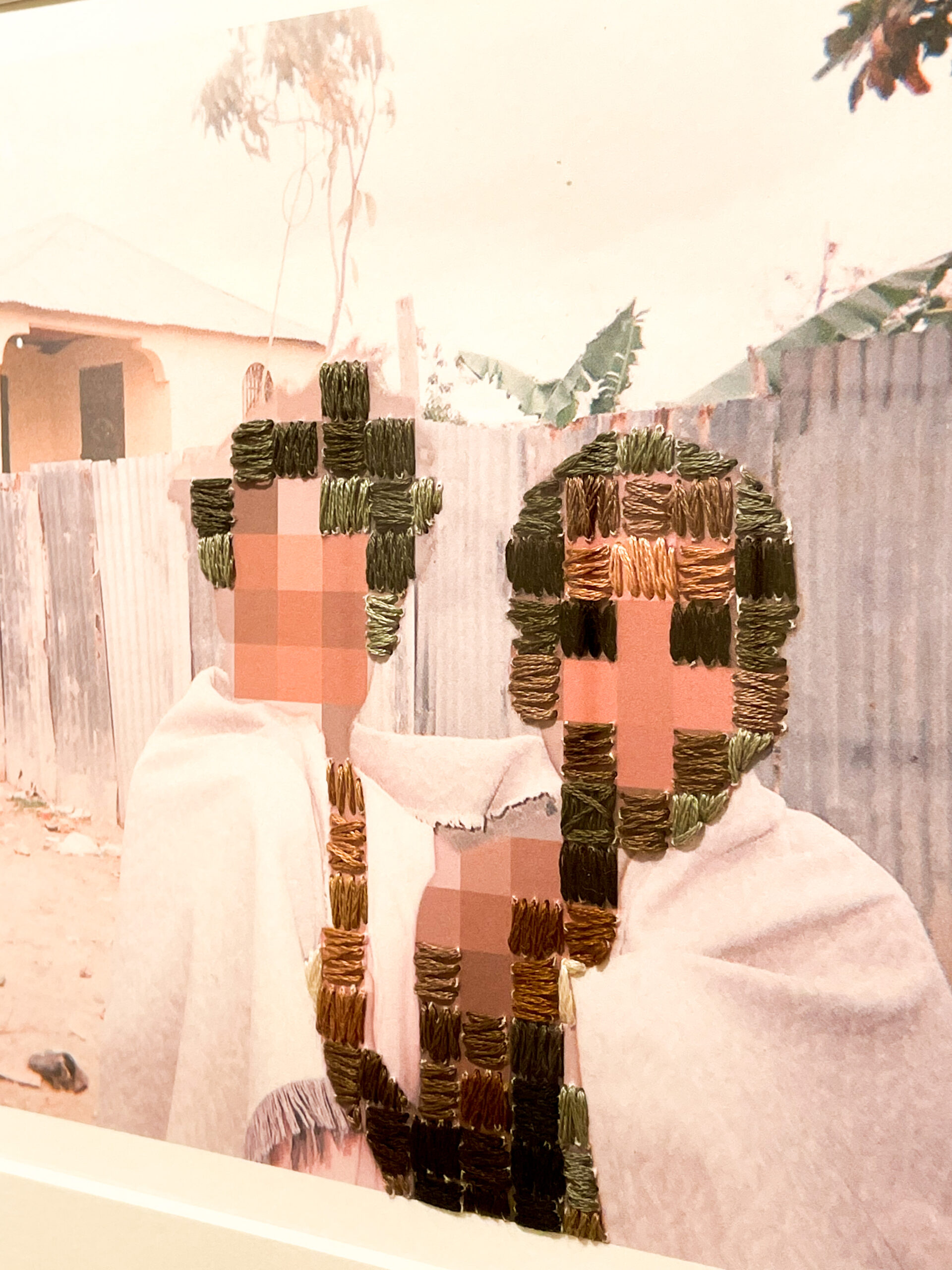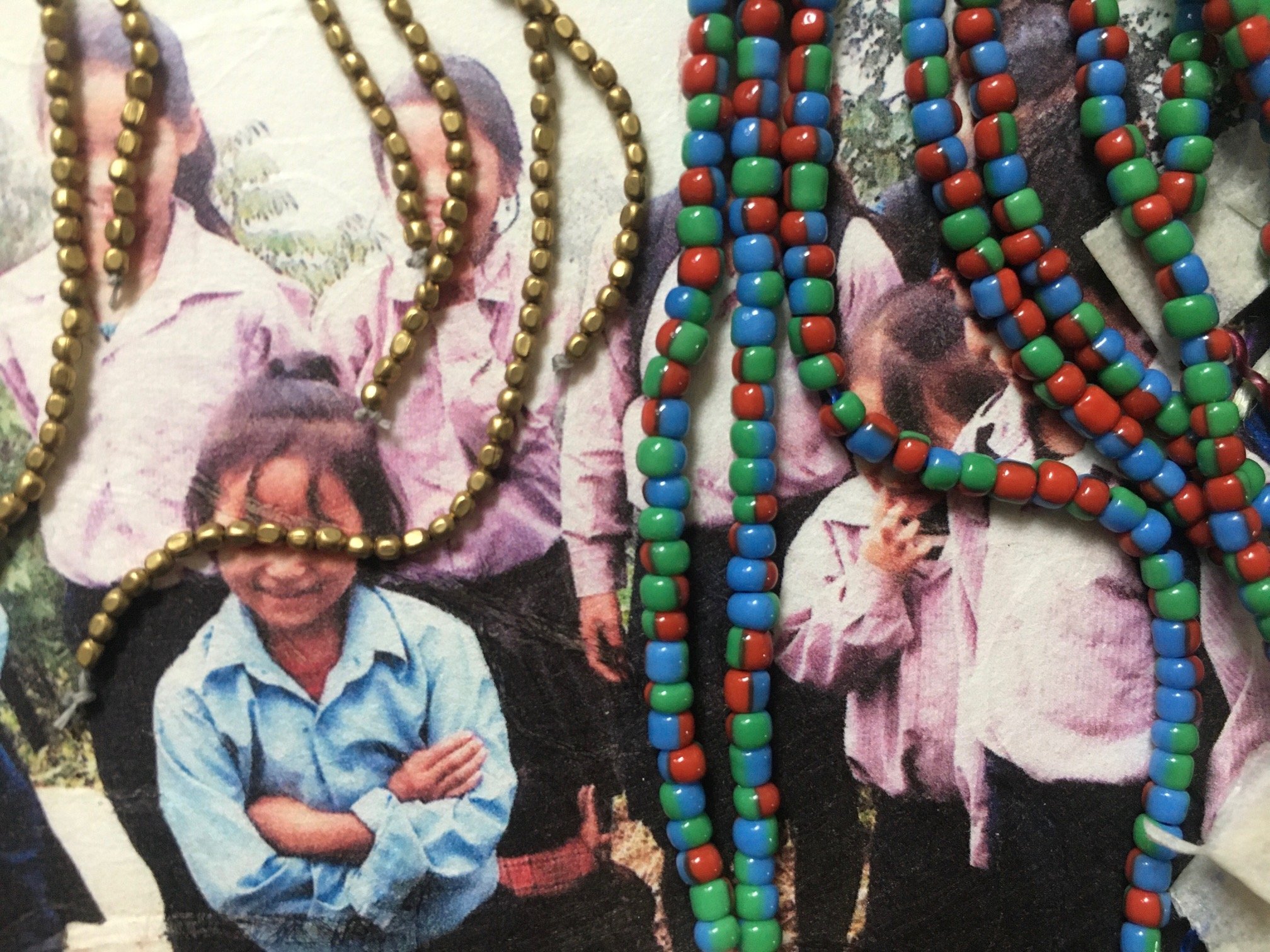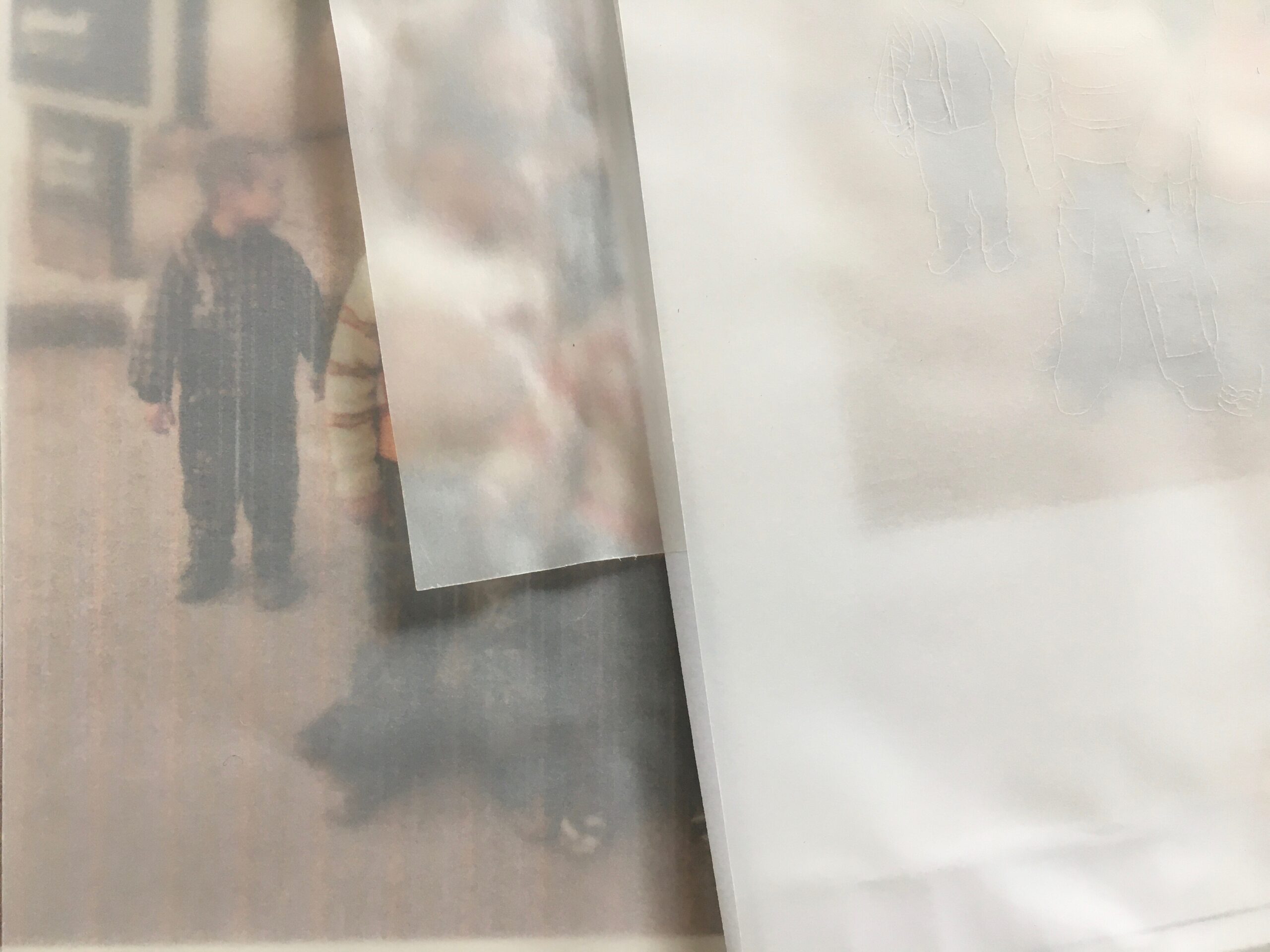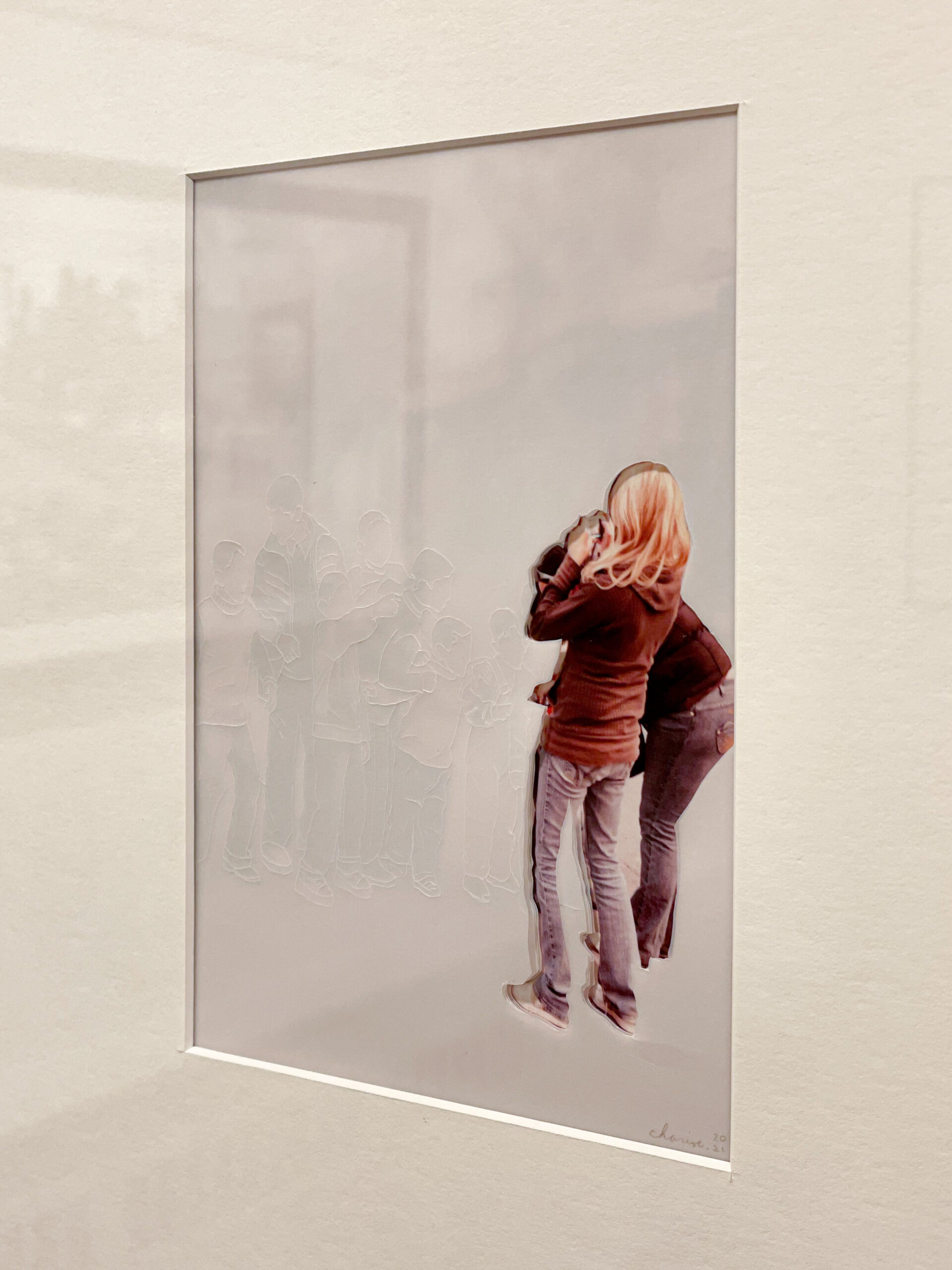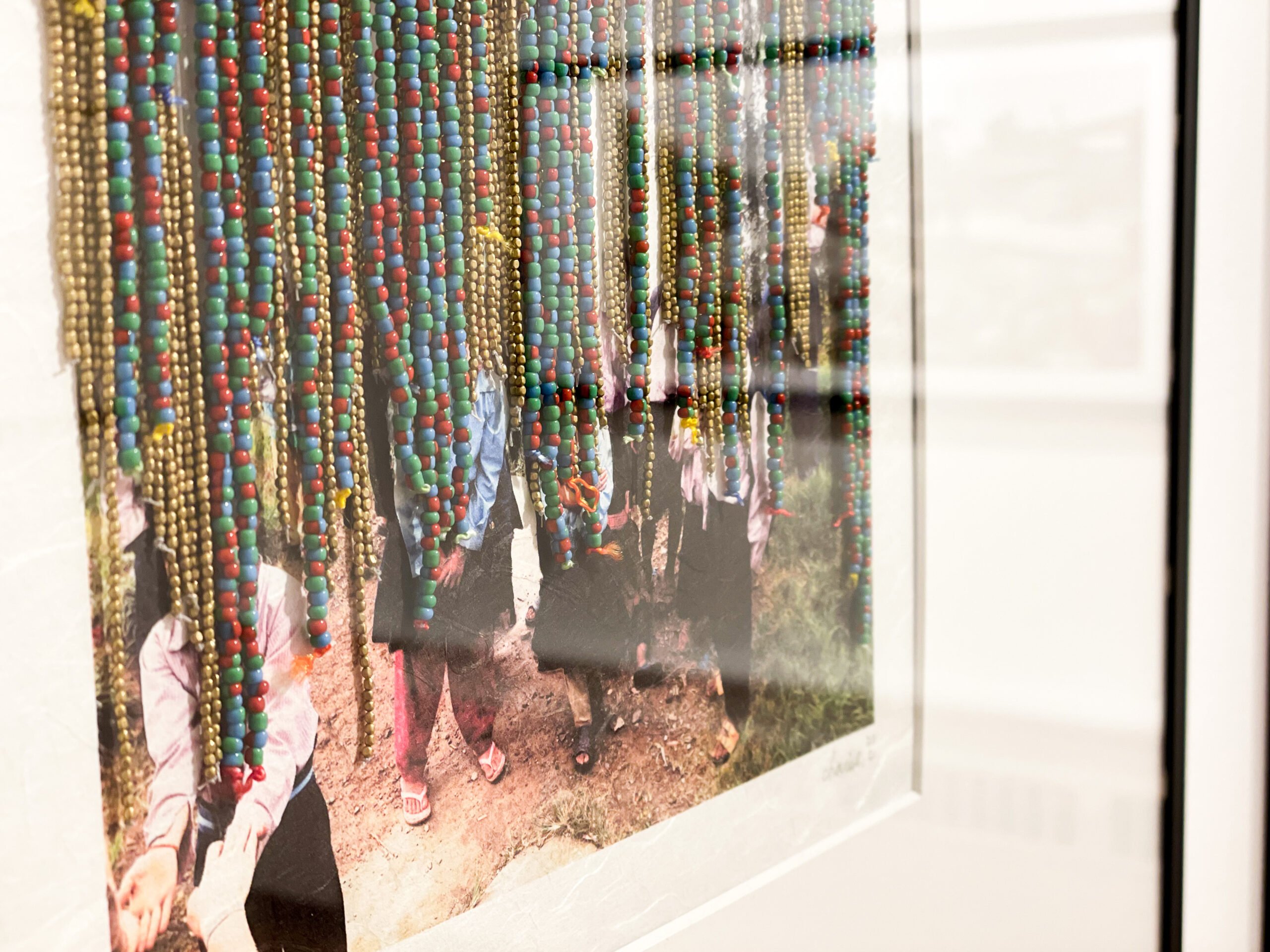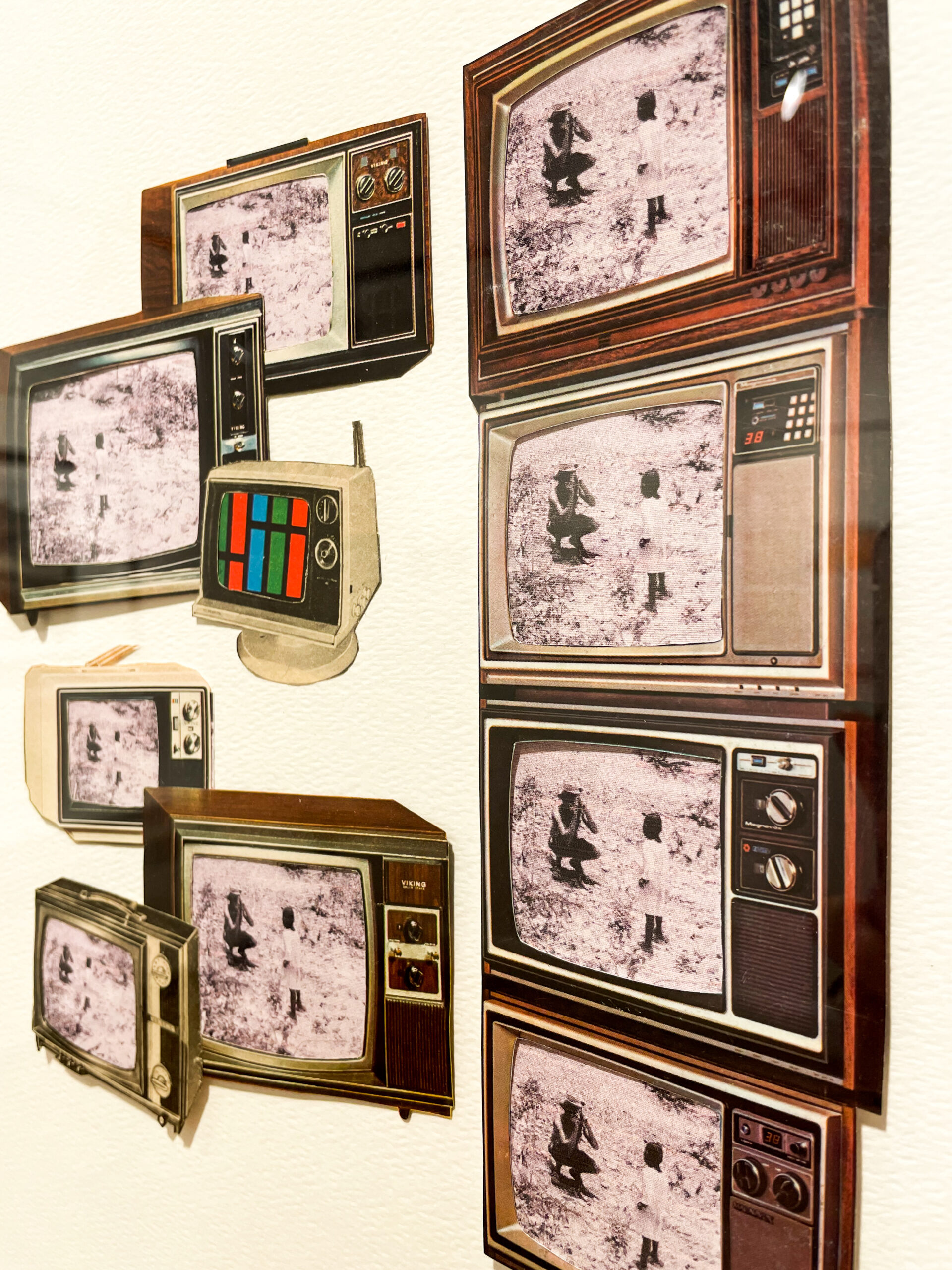Take the online virtual tour here.
For many, 2020 was the year of internal exploration, pondering mistakes, and reflecting on previous travel experiences. Charise Folnovic has taken those combined experiences to create (un)Censored. This exhibition explores the naivety and innocence of children living in developing countries and tourists who (unknowingly) exploit them.
The work is conceptual and asks the viewer to pause an reflect. So if a viewer wants to engage and come up with their own questions/answers, they might have to take more than just a glance. There’s layers, deeper meanings, symbolism and iconography involved. It’s a lot to digest and will hopefully spark questions within the viewer.
This collection of manipulated photographs documents a personal exploration into a world of big questions surrounding censorship, poverty and the exploitation of children in the Global South. The photographs were initially captured during a period of travels and volunteer work with non-governmental organizations after graduating from art school. They reveal my own naivety of the world at large as well as other tourists, both exploiting the innocence of children or environments photographed.
The original images were dissected and built upon using different mediums and materials to act as a censor, keeping anonymity to see if that changes the narrative and how the viewer connects with the image. My hope is viewers will start to ask their own questions, taking time to pause and reflect, perhaps on their own past travels or to hopeful future ones, where more dignity is given to the subject photographed and a more thoughtful approach to capturing memories of a place or what we choose to publish and expose. We are in need of conversations that bring about awareness and help promote change. To talk about solutions and ask ourselves hard questions on whether we’re making an effort to challenge pre existing stereotypes or if we’re perpetuating them. These were not easy questions to ask myself, even attempt to answer, with a topic that doesn’t have easy solutions. I hope it helps tell a larger story with more meaning than the one-dimensionality of what we are predisposed to know. I encourage viewers to become advocates for issues of their own personal importance and to enjoy discovering the subtleties of each piece.
- Charise Folnovic

